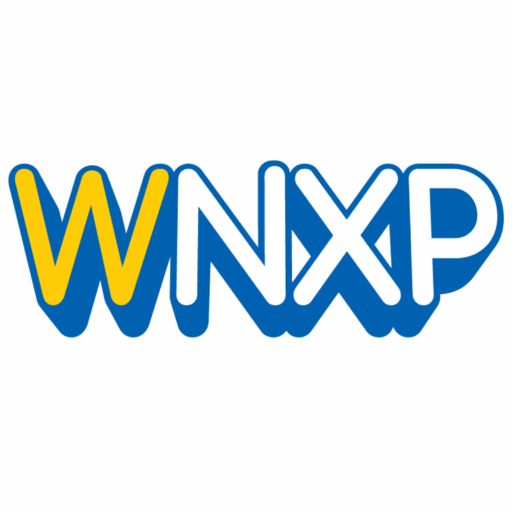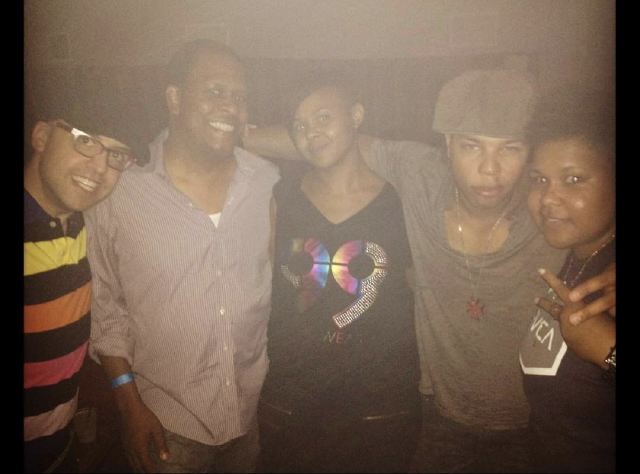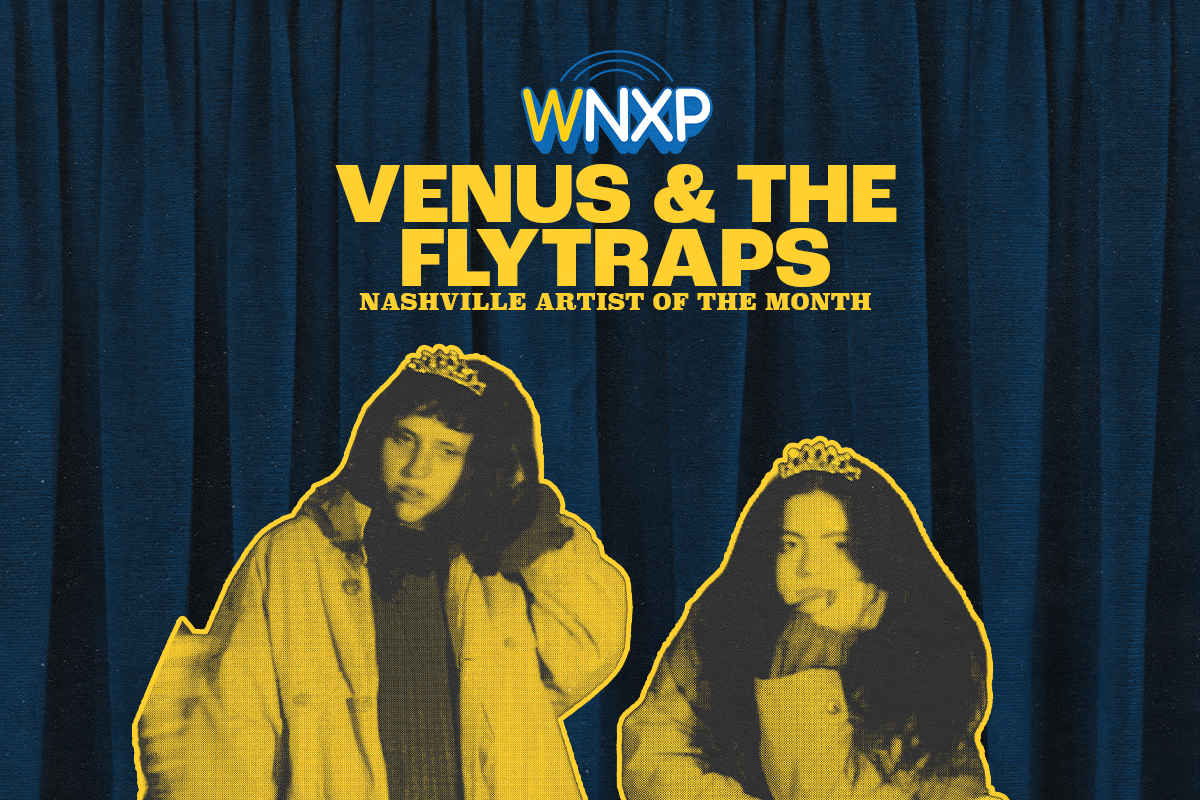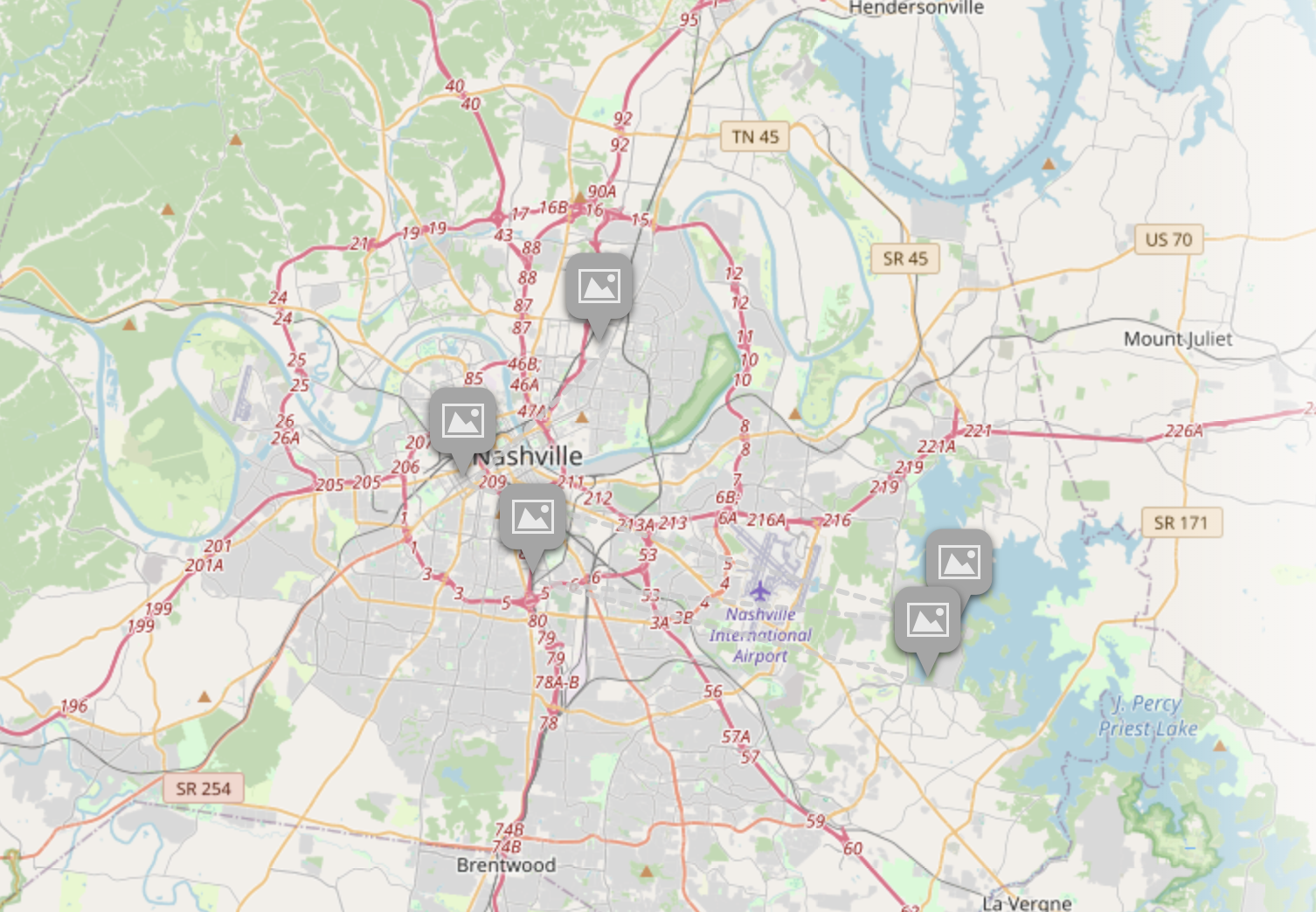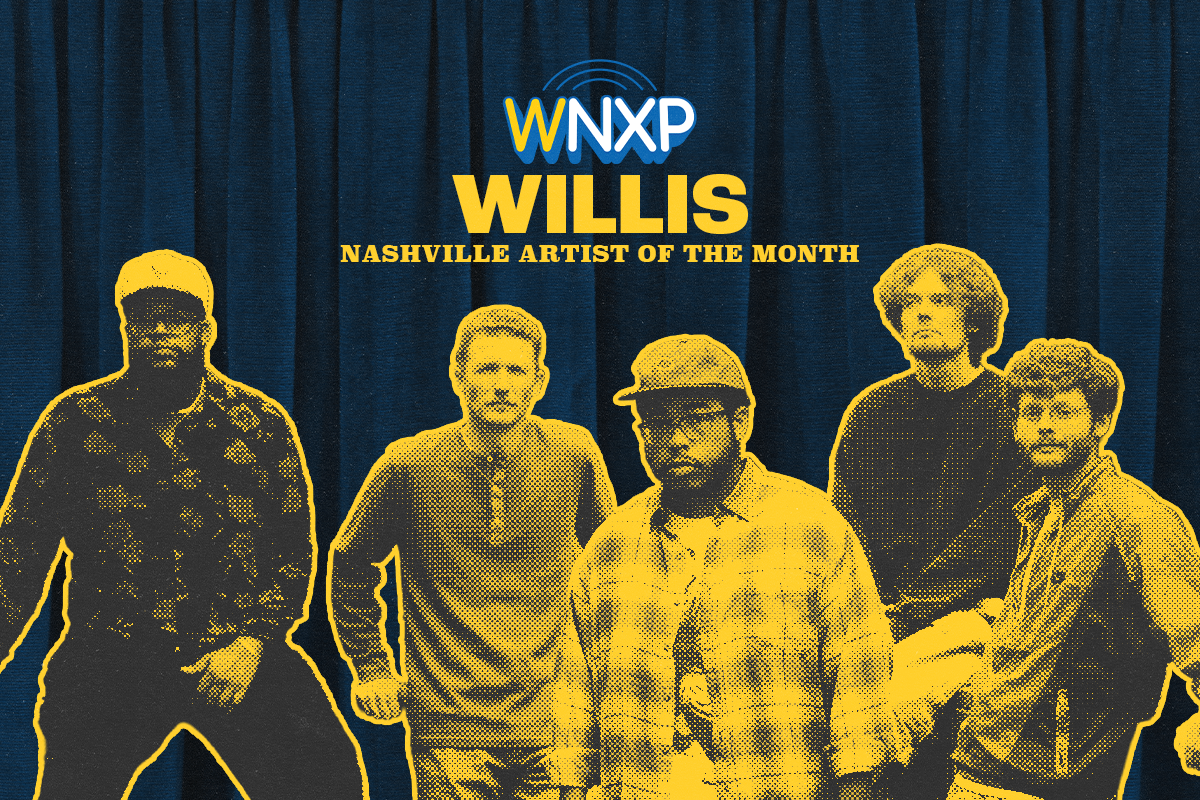Instead of focusing on one Nashville Artist of the Month in June, we’re celebrating the marks that Black Originators have made on the city, and one of those important figures is the late Leon Jackson. He was a Nashville native, an event promoter, a lover of all electronic music and a beloved figure in the DJ community that I’m also part of. The once mostly underground dance music scene grew in Nashville because of his efforts. Jackson not only set the stage for global names like Paul Oakenfold and Boy George to play here, he made way for local DJs AND created safe and inclusive spaces for people who wanted to dance in Music City. I spoke with one Nashville DJ and artist who knew him well, Jane Dupree.
Aaron Monty: I wish that I would have I would have known him because he seemed like a great guy.
Jane Dupree: He really introduced me to a different side of the electronic music scene. I came in from radio and from the gay bar scene. He introduced me to another side of DJing, for the bigger shows. I met him at a venue called 328. We had a mutual friend, and she was doing this party called Black Coffee.
At the time, he was doing a party called Electric Lounge. That was one of his earlier electronic events. This was before any involvement with Disco Donnie or before Ultimo.
AM: What was the first booking that you did together?
JP: The first show I played for Leon was Richard Humpty Vision at The Church in downtown Nashville. It was on Third near Lindsley. It was a church that they converted into a nightclub. It was on a Wednesday night and then the following month it was Bad Boy Bill at the same venue. Those were my first two bookings with Leon.
AM: How would you describe him?
JD: My experience with Leon was that he was just pretty happy. He was always smiling. He just wanted to go out and have a good time. He also kept it real. We’d have long conversations about music and life in general. You know, he was just that guy.
AM: Did he like all kinds of electronic music, or did he gravitate more toward house or drum and bass or any genre in particular?
JD: He liked all kinds of electronic music. You know, everyone’s partial to house. But he did book all types of shows and he listened to all types of music.
AM: Did he ever tell you when his love for electronic music started, or what sparked that for him?
JD: That, I don’t know. But I do know that he did start promoting shows at an early age, started doing rock shows.
AM: So pretty much all the time that you were in the scene Leon was also in the scene, right?
JD: Yeah. I came in around ‘99 and Leon was already in the scene. Gosh, from what I remember, he was doing shows when he went to TSU. He was in college in the ‘90s.
AM: I know it’s hard to kind of pontificate about why he thought Nashville was a hub for electronic music, but maybe he shared something like that with you, why he thought Nashville was a place that shouldn’t be overlooked for DJs and electronic music artists?
JD: Nashville is where he lived and Nashville is home to great musicians and DJs. Coming through a scene that was already created on the underground, we had promoters like Dorian, King Funk, and Good Guys. Those guys were already throwing pretty great underground shows. He wanted to kind of help push that.
AM: Did he do underground shows as well?
JD: Most of the shows were at ticketed venues. It was underground music at legal venues.
AM: How would you hear about an event that Leon was doing?
JD: Back in the day, I remember seeing Leon himself putting fliers on cars. He’d go to record stores and he’d put up posters. He’d come to campus and put up fliers. And then eventually he got a street team to help with that.
But then there was a website. Originally, it started out as Tennessee Raver. Then it became Scene Tennessee. Then crony space. It was a bulletin board site. This was during the MySpace days. People would promote their events on these bulletin boards. Each community had their scene. There were times when he would drive out of town to another show to go drop off fliers or send fliers to someone in Memphis. They would just mail them to other promotion crews. They would do the same for him as he would do for them.
AM: Which DJs here in Nashville did he support?
JD: He supported a lot of DJs. Souljunk was someone that was on a lot of his shows in the earlier days. There was Justin Case, Sammie Diaz, Mindub, Noisefloor, Dorian. He supported a lot of up-and-coming artists, but he also had his regular people.
AM: How did his support help you as a deejay and promoter?
JD: I didn’t grow up here. I moved to Nashville from the sticks, and I had my radio show, but I felt that playing his shows kind of helped me reach a different audience. It gave me a little more backing in what I did as a DJ and what I was trying to do in my reach. I definitely feel that connecting with Leon helped me grow my audience and meet new people. I made a lot of friends that I’ve met through his parties. He helped me find my tribe.
AM: What kind of people attended the events?
JD: It was a variety of all types of people. You’d have people that were into Afro-centric house. You might have college kids, people from abroad, people from the rock, rap scenes, trance, drum and bass, house, all types of scenes. People came to see a good show; they just wanted something to do. Or there were fans of the DJs that he was bringing. Some of the guys he brought were not the mainstream, the bigger name DJs. He’d bring someone on the cusp that was fresh and cutting edge.
AM: How did he support the LGBTQ+ community?
JD: Leon supported everyone. One of the things that I feel that he did to support the community was to bring one of the biggest DJs at that time to Nashville. I never expected to see Junior Vasquez in Nashville. My partner at that time, one of my deejay buddies, was there, D.J. Eric. He was also an openly gay techno DJ. Leon booked him for multiple events, and he actually ran errands and picked up Junior Vasquez from the airport and took care of him.
He opened communication with Play Dance Bar. I connected him with one of the owners and he did several events at Play Dance Bar, even bringing a DJ set from Andy Bell from Erasure and Boy George. There were not promoters bringing bigger deejays to the gay clubs. Typically, the clubs have their resident DJs, and they didn’t really bring special guests, except for drag queens. Him doing that gave the fans of queer DJs a chance to see those guys.
So I feel that’s how he supported the community as well as having inclusive events. I never felt out of place at any event that he had. And that is coming from a queer, Black person in the South. Never, ever, ever felt any issues. I can’t think of anyone that felt uncomfortable as a queer person at any of his events. So, he definitely did a good job in making sure it was a safe space.
AM: Is there anything else about him that you think helps tell the story of who he is and why he was important to Nashville and to Nashville’s electronic music scene?
JD: During that time there we had local events, but we didn’t have anyone pushing big events and bigger venues for electronic music. He opened the doors for a lot of clubs to allow us to come in to play electronic music. Other than being an open format deejay and throwing in a couple dance remixes it was a bit difficult to have those venues accept electronic music before Leon. Leon came and he did events on Broadway. The Dayglow event that came in town, that was one of the first electronic events of that size at Nissan Stadium. It was in the parking lot area. That was the first time anything like that had come through Nashville. He was one of the first ones to incorporate festival style events in Nashville for electronic music.
